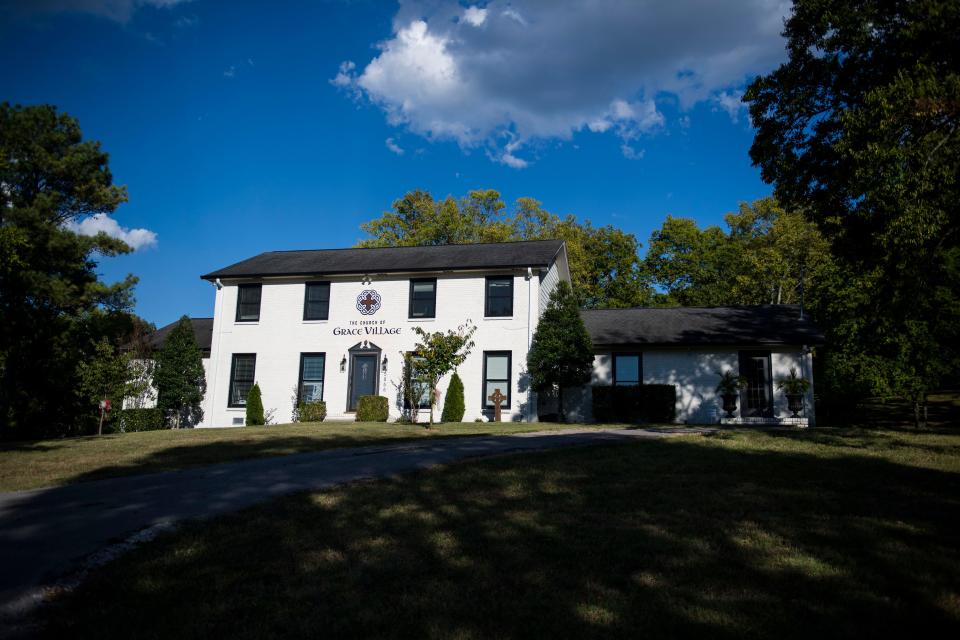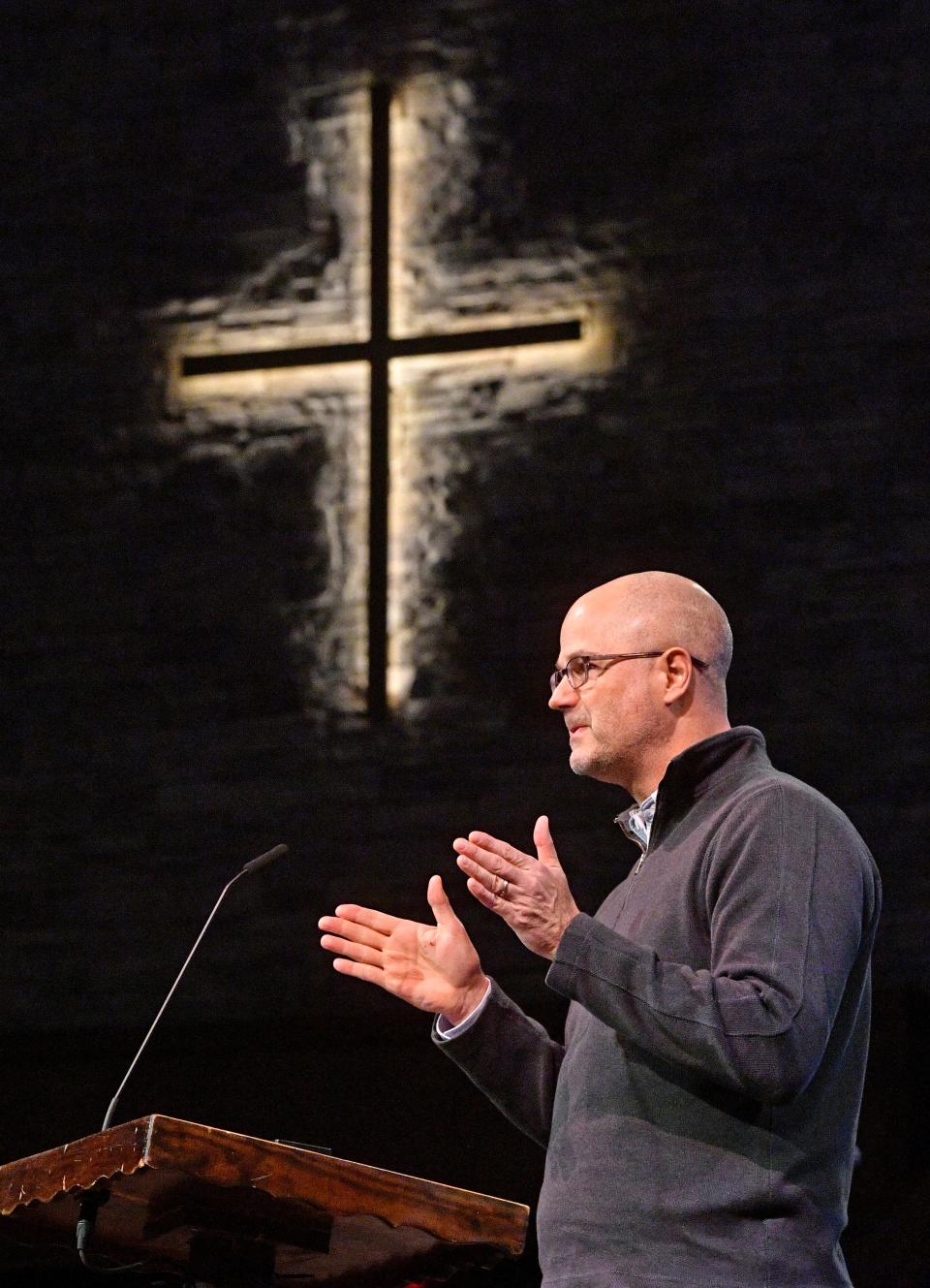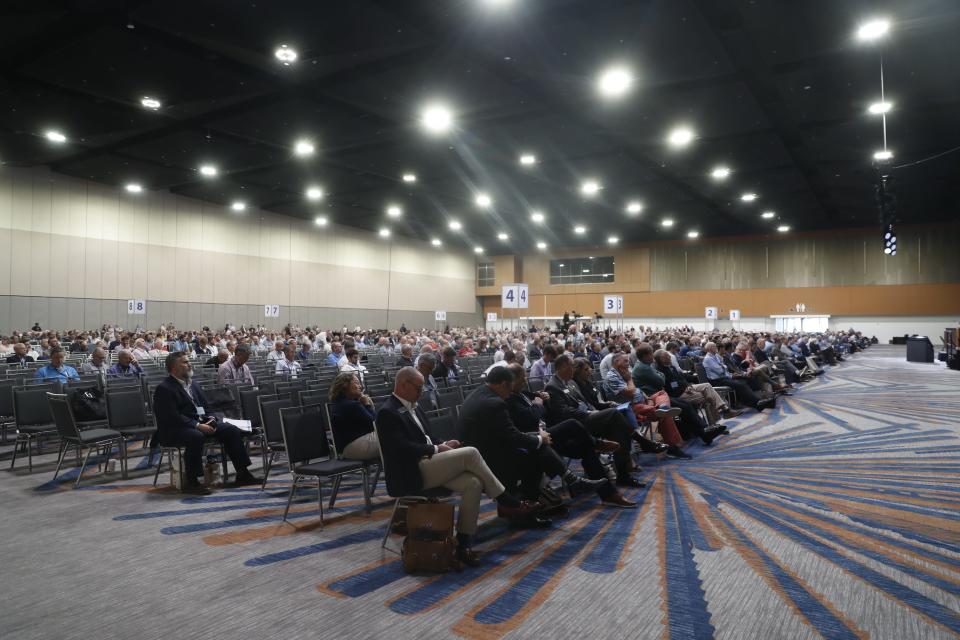How cases of pastors Scott Sauls, Ian Sears highlight accountability issues within the PCA
Disciplinary cases for two Presbyterian pastors in Nashville lacked transparency and potentially, accountability, because denomination guidelines allow it.
The Nashville Presbytery — the regional authority for churches in Middle Tennessee affiliated with the Presbyterian Church in America (PCA) — recently disciplined the Revs. Scott Sauls and Ian Sears following inquiries into a toxic workplace and alleged sexual misconduct, respectively.
The presbytery used a PCA guideline known as “case without process” in which a minister confesses to wrongdoing and avoids a trial in a church court. Though well-intended, the practice has increasingly faced scrutiny for allowing a presbytery to obscure key information and for inadvertently creating pathways for ministers to evade discipline altogether.

The protocol of “case without process,” also known as 38-1 in reference to its corresponding section in the PCA Book of Church Order, “needs transparency,” the Rev. Tim LeCroy said in an interview. LeCroy, a New York pastor, served as chair of the PCA ad interim committee on domestic abuse and sexual assault, which published an extensive report in 2022.
“The confession needs to be somewhat in the open, especially if it’s a minister to a church,” LeCroy said. “I think transparency is important when you’re talking about leaders and what they’ve done.”
But the opposite has happened in both the cases of Sauls, senior pastor of Christ Presbyterian Church, and Sears, former pastor of The Church of Grace Village. Due to its use of 38-1 in both cases, the Nashville Presbytery discussed the findings of inquiries into Sauls and Sears in executive session.
Following those investigations into Sauls and Sears, both pastors formally confessed to wrongdoing in accordance with 38-1. But due to the presbytery’s use of executive session when discussing the cases, the people who initially reported the pastors and who participated in those inquiries don’t know the details of those confessions.
Sears recanted his confession right before the presbytery censured him with deposition, a form of discipline in the PCA barring someone from serving in ministry. Sears recently appealed his censure with the PCA Standing Judicial Commission, which is the denomination’s highest court.
Sears resigned from The Church of Grace Village and the congregation voted Sunday to formally “dissolve” his call, said the Rev. Dominic Aquila, who is representing Sears as his counsel in the pending PCA Standing Judicial Commission case.
LeCroy said 38-1 is “is almost like pleading guilty in a criminal court.” It saves presbyteries time and money by avoiding a church court trial, and it can help victims who feel retraumatized by a trial that causes them to relive painful experiences.

But there are also major shortfalls with 38-1. “There’s no resolution for the victim to hear and to experience whether or not the accused is truly repentant,” Ann Maree Goudzwaard, an abuse survivor advocate and founder of the nonprofit HelpHer Ministry, said in an interview.
Goudzwaard served as an expert consultant for the PCA ad interim committee on domestic abuse and sexual assault, which evaluated how the PCA can revise guidelines like 38-1 to hold abusers more accountable. Goudzwaard is also working with the woman who initially reported Sears’ alleged sexual misconduct to the Nashville Presbytery.
Goudzwaard said a major problem with 38-1 is a requirement for an agreement on a statement of facts about a minister’s wrongdoing between that minister and the presbytery overseeing the discipline. It gives a minister considerable agency over the official record of their wrongdoing.
“The alleged abuser will either agree to or disagree with that list (of facts),” Goudzwaard said. “This is what they call repentance and confession. How is this repentance?”
Proper procedure and loopholes
Critics of 38-1 argue the protocol is too deferential to the accused and largely bypasses the accuser.
In Sauls’ case, a select few know a more detailed account of Sauls’ actions, even though Sauls has been able to publicly share his more subjective take in a video to Christ Presbyterian members. Amid this information gap, Sauls is working toward a possible full restoration to the pulpit pending a decision by the Nashville Presbytery to lift Sauls’ ongoing indefinite suspension.

Sears, on the other hand, is protesting his discipline on procedural grounds and is asking the PCA Standing Judicial Commission to reverse his deposition. The denomination’s highest court has dealt with similar cases before and sided with appellants like Sears, spurring outcry that 38-1 provides a loophole for ministers to skirt discipline altogether.
“Potentially, any aspect of our polity can be abused,” LeCroy said. “Of course, 38-1 can be used strategically by those who are trying to evade accountability. But the larger point is it’s up to the court to follow the procedure and adjudicate it properly.”
Since 2008, the PCA Standing Judicial Commission has ruled against presbyteries in five out of seven cases in which the presbyteries used 38-1 to handle a minister’s discipline.
The PCA Standing Judicial Commission ruled against those presbyteries for not following 38-1 properly and in two of those cases, nullified depositions against the Revs. John Evans in Arizona and Rankin Wilbourne in California. For Sears, the Evans and Wilbourne cases set an encouraging precedent.
Among other contentions, Sears argues the Nashville Presbytery violated 38-1 when it disciplined him despite disagreements between Sears and the presbytery over the statement of facts of wrongdoing, according to a copy of Sears’ written appeal to the PCA Standing Judicial Commission.
Sears initially signed a formal confession that he and the presbytery agreed to, but later recanted that confession around the time the presbytery decided his misconduct rose to the level of deposition.
New guidance for guidelines
Amid growing protest of 38-1, there are some changes on the horizon.
The PCA is in the process of ratifying an amendment to 38-1 allowing “offended parties,” such as victims of abuse, to review and comment on the statement of facts used in a minister’s confession and in a presbytery’s disciplinary judgment.
At the denomination’s annual gathering this year in Memphis, the PCA General Assembly approved the amendment to 38-1 on first reading. Now, two-thirds of all presbyteries must approve the measure and the PCA General Assembly must ratify it on second reading at the 2024 annual meeting.

The proposed addition to 38-1 allows for more transparency and safeguards against misuse by “abusers who try to mitigate the fallout by confessing to something far less than what they did,” said LeCroy, who co-authored the proposed amendment to 38-1.
At its meeting this year, the PCA General Assembly rejected other abuse reform proposals, though revised versions may return in future years.
Other news from PCA assembly in Memphis: Presbyterian Church in America backs limits amid sexuality and women deacon debates
The PCA ad interim committee on domestic abuse and sexual assault, in its 2022 report, advised presbyteries to seek outside help from a third-party expert in cases involving abuse allegations, even when it’s a “case without process.”
“38-1 is not inherently a problem,” LeCroy said. “It can be used properly as long as it includes input from those who have been harmed, there’s transparency and if it’s accompanied by an investigation.”
Liam Adams covers religion for The Tennessean. Reach him at ladams@tennessean.com or on Twitter @liamsadams.
This article originally appeared on Nashville Tennessean: Pastors Scott Sauls, Ian Sears discipline highlights larger issues in PCA

